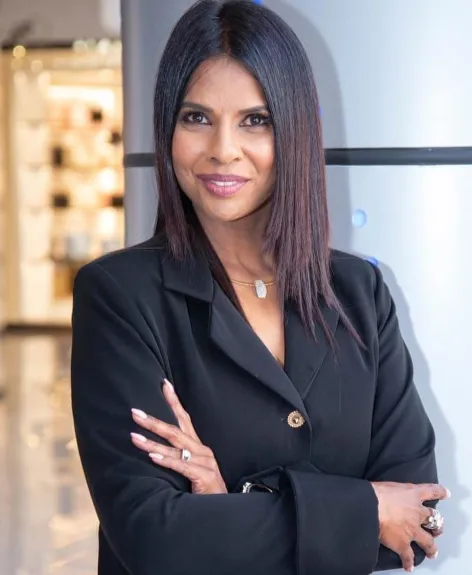A South African woman's call to action: defying the statistics, embracing our power
Building a better future

We are forging our own paths through entrepreneurship launching businesses not just for profit, but as a form of social justice and an act of self-liberation, says the writer.
Image: Pexels.com/Pavel Danilyuk
SOUTH Africa, a nation built on a complex foundation of triumph and trauma, continues to grapple with the deep-seated legacies of inequality. Yet, in this challenging landscape, a powerful force is rising: the indomitable spirit of South African women.
They are not merely observers of change, but its very architects, leading movements, building enterprises, and rewriting the narrative of our nation. This progress, however, has been hard-won, a continuous struggle against systemic barriers that still stand in our way.
The harsh realities: a mirror to our work
As we forge ahead, we must not shy away from the statistics that reveal the persistent inequalities we face. These numbers are not a narrative of our limitations, but a mirror reflecting the crucial work that still needs to be done. The data from Statistics South Africa paints a clear picture of a gendered landscape.
Poverty and economic disparity: More than 42.4% of South African households are headed by women, a figure that soars in rural provinces like the Eastern Cape and KwaZulu-Natal. These women, the matriarchs of our communities, bear the weight of families on a landscape where the odds are stacked against them. The World Economic Forum’s Global Gender Gap Report highlights a sobering reality: South African women are still paid 23% to 35% less than men for the same work. In the first quarter of 2025, women accounted for a staggering 77% of all job losses, despite comprising only 44% of the employed population. This isn't just a setback; it's an economic crisis demanding justice.
A "hidden crisis" of violence: The statistics on gender-based violence (GBV) are not just numbers; they are a national tragedy. A recent Human Sciences Research Council report confirms a harrowing reality: 1 in 3 South African women over the age of 18 has experienced physical intimate partner violence in her lifetime. This violence, from physical brutality to the subtle cruelty of economic control, threatens to unravel the hard-won progress of women's empowerment. It is a calculated pattern of power and domination that leaves deep and lasting scars, and it demands our collective compassion and urgent action.
The unbroken glass ceiling: While our Constitution guarantees gender equality, the daily reality in the workplace tells a different story. A 2024 analysis by Just Share on the JSE's Top 40 found a modest increase in women on boards, but a 2% decline in women in executive positions, with only 23% of these roles held by women. A 2022 PwC report found that across all JSE-listed companies, only 8% of CEOs and 22% of CFOs are female. This is not a missed opportunity; it’s a profound failure to tap into the full potential of our country's talent pool.
These statistics can feel overwhelming, a narrative of limitation that can cause us to question our ambitions. But as an entrepreneur, I have learned that a "no" is not the end of the road; it's an invitation to find another way. I do not see a reason to retreat; I see a grand, undeniable opportunity to defy them.
Entrepreneurship: a pathway to self-liberation
In the face of these formidable barriers, women are not waiting for permission. We are forging our own paths through entrepreneurship launching businesses not just for profit, but as a form of social justice and an act of self-liberation. We are creating enterprises that are community-centered and that embed equality into their very DNA.
I know the road is tough. Access to finance remains a significant hurdle, with banks and institutions often viewing women-owned businesses as high-risk, despite evidence to the contrary. But this is where our collective power and ingenuity become our greatest assets. We are building our own support networks, mentoring the next wave of leaders, and proving that the true measure of risk is not gender, but vision and grit. Our journey is a deliberate shift from being a passive recipient of the economy to an active driver of it.
A unified vision: inspiring the next generation
Our journey is far from over. The path to gender equity and inclusive entrepreneurship cannot be shouldered by women alone. It requires a collaborative effort from government, civil society, and the private sector. We must demand:
- Stronger enforcement of equity policies: Moving from symbolic gestures to measurable, transformative action across all sectors.
- Equitable access to funding and procurement: Financial institutions must rethink their risk models and invest in the proven potential of women-led businesses.
- Investment in education and mentorship: We need more pipelines that target young girls and women in STEM, and more mentorship programs to guide them through the complexities of leadership.
- Protection from violence: We must work tirelessly to strengthen GBV interventions, shelters, and legal support services to ensure that a woman's economic and personal safety are not mutually exclusive.
Women in South Africa have always been agents of transformation. From the women who marched in 1956 to our mothers and grandmothers who nurtured generations against all odds, we carry their legacy. Today, we stand on their shoulders, ready to navigate the complexities of justice, gender, and enterprise with both courage and clarity.
Our vision is clear: a South Africa where every woman can thrive with dignity, equity, and purpose. And that vision is not a dream - it is a promise we must all work to fulfill.

Pria Haasan
Image: Facebook
Advocate Pria Hassan is the Group CEO of WOA (Fuels logistics, automotive, pharma, healthcare, petroleum, construction and insurance). She has been honoured nationally and internationally for her work in women’s empowerment. Haasan also mentors young women and continues to lead with purpose and authenticity.
** The views expressed do not necessarily reflect the views of IOL or Independent Media.
Related Topics: